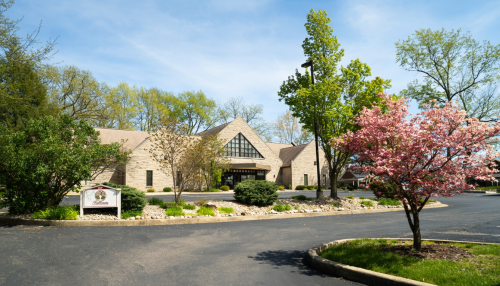

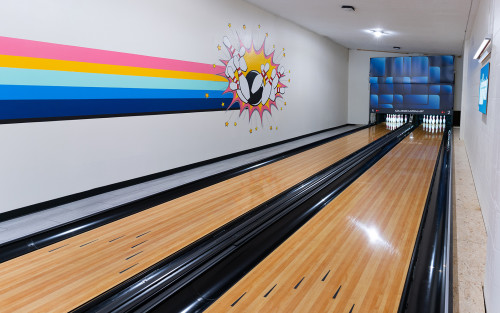
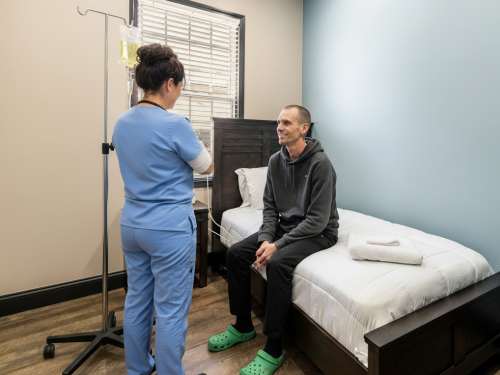
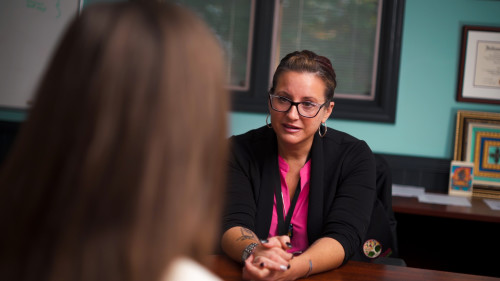




Indiana Center for Recovery Bloomington
Verified Center
This provider's information has been quality-checked by Recovery.com's Research Team for accuracy and completeness, including center verification through appropriate third-party organizations.
Treatment Focus
This center treats substance use disorders and mental health conditions. You'll receive individualized care catered to your unique situation and diagnosis, learn practical skills for recovery, and make new connections in a restorative environment.
Primary Level of Care
Offering intensive care with 24/7 monitoring, residential treatment is typically 30 days and can cover multiple levels of care. Length can range from 14 to 90 days typically.
Treatment Focus
This center treats substance use disorders and mental health conditions. You'll receive individualized care catered to your unique situation and diagnosis, learn practical skills for recovery, and make new connections in a restorative environment.
Primary Level of Care
Offering intensive care with 24/7 monitoring, residential treatment is typically 30 days and can cover multiple levels of care. Length can range from 14 to 90 days typically.
Provider's Policy
Our insurance team verifies your coverage, benefits, and requirements to ensure medical necessity and minimize costs.
Indiana Center for Recovery Bloomington
Indiana Center for Recovery Bloomington
About Indiana Center for Recovery Bloomington
Named one of America’s Best Treatment Centers for 4 consecutive years (2021–2024), Indiana Center for Recovery in Bloomington offers a compassionate, structured residential program for adults and Veterans facing addiction and mental health challenges. With 24/7 support, the program combines evidence-based therapies and personalized care, including detoxification. Thoughtfully crafted daily schedules blend therapeutic activities like mindfulness with moments to unwind and reconnect.
Overcome Addiction with Comprehensive Care
The Bloomington location specializes in treating substance use disorders, including addictions to alcohol, opioids, cocaine, methamphetamine, and benzodiazepines, alongside mental health issues like PTSD, anxiety, depression, and bipolar disorder. The residential program focuses on detoxification, relapse prevention, and addressing co-occurring disorders through evidence-based therapies such as cognitive behavioral therapy (CBT), dialectical behavior therapy (DBT), and trauma-informed care. Creative outlets like art and music therapy further support emotional well-being, while holistic methods, including meditation sessions and recreational activities, help clients find balance.
Find Balance with Wellness and Relaxation
At Bloomington, recovery is supported by thoughtful amenities that enhance the healing process. Clients have access to an on-site gym with daily workout opportunities, meditation sessions, and entertainment options like ping pong, pool tables, and a basketball court. Basic toiletries, laundry facilities, and meal services are provided, ensuring a worry-free stay. Snacks, sandwiches, and drinks are available at all hours, allowing residents to feel at home while focusing entirely on their recovery journey.
Strengthen Family Relationships and Experience Ongoing Aftercare
Understanding the vital role families play in recovery, the Bloomington residential program includes family-focused workshops during Monthly Family Weekends, where loved ones can learn about addiction, mental health, and effective support strategies. Comprehensive discharge planning ensures clients leave with a solid foundation, connecting them to therapy, support groups, and other community resources to maintain progress after treatment. The robust aftercare program fosters ongoing connections and relapse prevention, empowering individuals and their families to move forward with confidence.

Highlights from the Center
Highlights
These highlights are provided by and paid for by the center.
Holistic Approach
Medically Assisted Detox
Certified Professionals
Trauma-Informed Care
Center Overview
Treatment Focus
This center treats substance use disorders and mental health conditions. You'll receive individualized care catered to your unique situation and diagnosis, learn practical skills for recovery, and make new connections in a restorative environment.
Joint Commission Accredited
The Joint Commission accreditation is a voluntary, objective process that evaluates and accredits healthcare organizations (like treatment centers) based on performance standards designed to improve quality and safety for patients. To be accredited means the treatment center has been found to meet the Commission's standards for quality and safety in patient care.
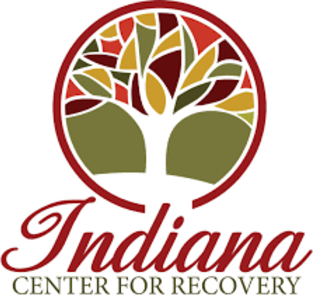
Indiana Center for Recovery Bloomington
Insurance Accepted


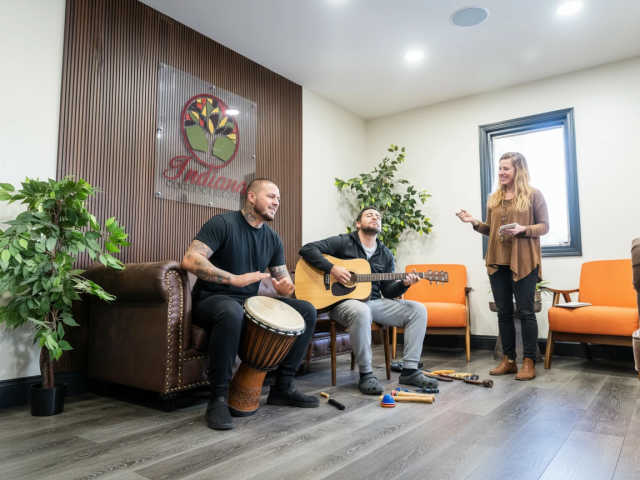

Recovery.com Verified Listing
Recovery.com verified that the name, location, contact information and license to operate for this treatment provider are valid and up-to-date.

Joint Commission Accredited

Licensed by Indiana
Recovery.com is an independent, third-party mental health resource. Verification does not imply endorsement and does not guarantee the quality of treatment services.
Meet Your Care Team
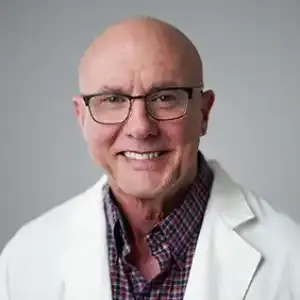
Dr. Michael Kane
Chief Medical Officer
MD
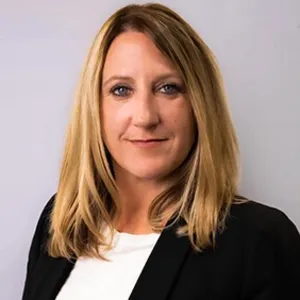
Julia Compton
Executive Director
LSW/JD
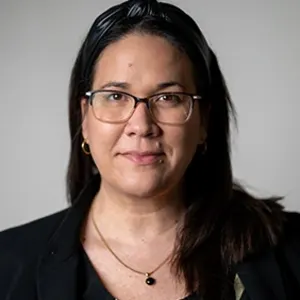
Melissa Lynch
Clinical Director
LCSW
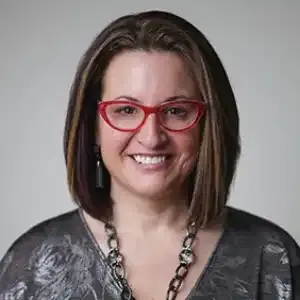
Jackie Daniels
Director of Clinical Development
LCSW, CADAC
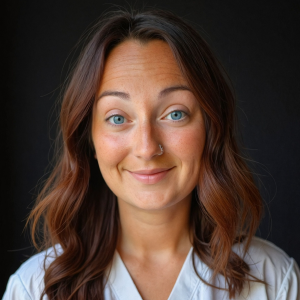
Kayla Wilson
Director of Nursing
RN
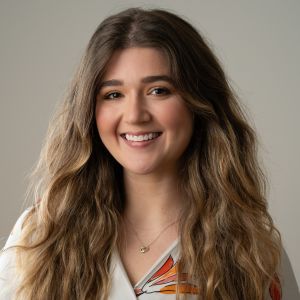
Lola Mahner
Director of Outpatient Services
LCSW
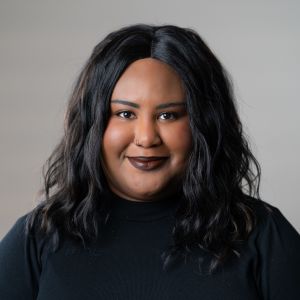
Ramona Simmons
Program Director
Your Care Options
Specializations
Alcohol
Using alcohol as a coping mechanism, or drinking excessively throughout the week, signals an alcohol use disorder.
Anxiety
Anxiety is a common mental health condition that can include excessive worry, panic attacks, physical tension, and increased blood pressure.
Detox
Detox fully and safely removes toxic substances from the body, allowing the next steps in treatment to begin with a clean slate.
Co-Occurring Disorders
A person with multiple mental health diagnoses, such as addiction and depression, has co-occurring disorders also called dual diagnosis.
Drug Addiction
Drug addiction is the excessive and repetitive use of substances, despite harmful consequences to a person's life, health, and relationships.
Medication-Assisted Treatment
Combined with behavioral therapy, prescribed medications can enhance treatment by relieving withdrawal symptoms and focus patients on their recovery.
Post Traumatic Stress Disorder
PTSD is a long-term mental health issue caused by a disturbing event or events. Symptoms include anxiety, dissociation, flashbacks, and intrusive thoughts.
Trauma
Some traumatic events are so disturbing that they cause long-term mental health problems. Those ongoing issues can also be referred to as "trauma."
Who We Treat
Men and Women
Men and women attend treatment for addiction in a co-ed setting, going to therapy groups together to share experiences, struggles, and successes.
Veterans
Patients who completed active military duty receive specialized treatment focused on trauma, grief, loss, and finding a new work-life balance.
Treatment Services
Detox
Detox fully and safely removes toxic substances from the body, allowing the next steps in treatment to begin with a clean slate.
Intensive Outpatient Program
In an IOP, patients live at home or a sober living, but attend treatment typically 9-15 hours a week. Most programs include talk therapy, support groups, and other methods.
Outpatient
During outpatient rehab, patients attend a structured treatment program while continuing to live at home.
Residential
In a residential rehab program, patients live onsite, with access to daily treatment and 24-hour care. An average stay is 30-90 days.
Approaches
Evidence-Based
A combination of scientifically rooted therapies and treatments make up evidence-based care, defined by their measured and proven results.
Family Involvement
Providers involve family in the treatment of their loved one through family therapy, visits, or both–because addiction is a family disease.
Holistic
A non-medicinal, wellness-focused approach that aims to align the mind, body, and spirit for deep and lasting healing.
Personalized Treatment
The specific needs, histories, and conditions of individual patients receive personalized, highly relevant care throughout their recovery journey.
Twelve Step
Incorporating spirituality, community, and responsibility, 12-Step philosophies prioritize the guidance of a Higher Power and a continuation of 12-Step practices.
Therapies
1-on-1 Counseling
Patient and therapist meet 1-on-1 to work through difficult emotions and behavioral challenges in a personal, private setting.
Meditation & Mindfulness
A practiced state of mind that brings patients to the present. It allows them to become fully aware of themselves, their feelings, and the present moment.
Trauma-Specific Therapy
This form of talk therapy addresses any childhood trauma at the root of a patient's current diagnosis.
Art Therapy
Visual art invites patients to examine the emotions within their work, focusing on the process of creativity and its gentle therapeutic power.
Equine Therapy
Guided interactions with trained horses, their handler, and a therapist can help patients improve their self-esteem, trust, empathy, and social skills.
Experiential Therapy
With this approach, patients heal by doing. Therapists help patients process difficult emotions to speak, using guided activities like art or dance.
Eye Movement Therapy (EMDR)
Lateral, guided eye movements help reduce the emotional reactions of retelling and reprocessing trauma, allowing intense feelings to dissipate.
Family Therapy
Family therapy addresses group dynamics within a family system, with a focus on improving communication and interrupting unhealthy relationship patterns.
Conditions We Treat
Personality Disorders
Personality disorders destabilize the way a person thinks, feels, and behaves. If untreated, they can undermine relationships and lead to severe distress.
Depression
Symptoms of depression may include fatigue, a sense of numbness, and loss of interest in activities. This condition can range from mild to severe.
Post Traumatic Stress Disorder
PTSD is a long-term mental health issue caused by a disturbing event or events. Symptoms include anxiety, dissociation, flashbacks, and intrusive thoughts.
Self-Harm
The act of intentionally harming oneself, also called self-injury, is associated with mental health issues like depression.
Suicidality
With suicidality, a person fantasizes about suicide, or makes a plan to carry it out. This is a serious mental health symptom.
Trauma
Some traumatic events are so disturbing that they cause long-term mental health problems. Those ongoing issues can also be referred to as "trauma."
Substances We Treat
Alcohol
Using alcohol as a coping mechanism, or drinking excessively throughout the week, signals an alcohol use disorder.
Benzodiazepines
Benzodiazepines are prescribed to treat anxiety and sleep issues. They are highly habit forming, and their abuse can cause mood changes and poor judgement.
Co-Occurring Disorders
A person with multiple mental health diagnoses, such as addiction and depression, has co-occurring disorders also called dual diagnosis.
Cocaine
Cocaine is a stimulant with euphoric effects. Agitation, muscle ticks, psychosis, and heart issues are common symptoms of cocaine abuse.
Drug Addiction
Drug addiction is the excessive and repetitive use of substances, despite harmful consequences to a person's life, health, and relationships.
Ecstasy
Ecstasy is a stimulant that causes intense euphoria and heightened awareness. Abuse of this drug can trigger depression, insomnia, and memory problems.
Heroin
Heroin is a highly addictive and illegal opioid. It can cause insomnia, collapsed veins, heart issues, and additional mental health issues.
Methamphetamine
Methamphetamine, or meth, increases energy, agitation, and paranoia. Long-term use can result in severe physical and mental health issues.
Languages
Aftercare
Care Designed for Your Needs
Personal Amenities
Amenities
Special Considerations
Gender-specific groups
Patients in gender-specific groups gain the opportunity to discuss challenges unique to their gender in a comfortable, safe setting conducive to healing.
Activities
Yoga
Yoga is both a physical and spiritual practice. It includes a flow of movement, breathing techniques, and meditation.
Off-Site Activities

Learn More About the Center
Genesight Genetic Testing
Use genetic insights to find medications that are the best fit for each individual.
Relief for Medication-Resistant Depression with Spravato
Spravato Ketamine Therapy is a nasal spray made from esketamine, a form of ketamine that targets brain pathways untouched by typical antidepressants.
TMS Therapy: Transforming Mental Health Treatment Without Medication
Transcranial Magnetic Stimulation (TMS) is a safe, FDA-approved treatment for people struggling with mental health, especially when traditional medications haven’t worked.
Biomedical Feedback: Enhancing Emotional and Physical Wellness
Train the brain and body to reduce stress, anxiety, and physical tension naturally.
What people are saying
Treatment
4.9
Accommodations
4.9
Food & Nutrition
4.8
Value
4.9
Carrie
Reviewed 11/17/22
Review from Rehabs.com
Simi F.
Reviewed 12/16/21
Review from Rehabs.com
Amanda
Reviewed 05/16/22
Review from Rehabs.com
Ray
Reviewed 08/30/21
Review from Rehabs.com
Dean
Reviewed 02/24/25
Review from Rehabs.com





